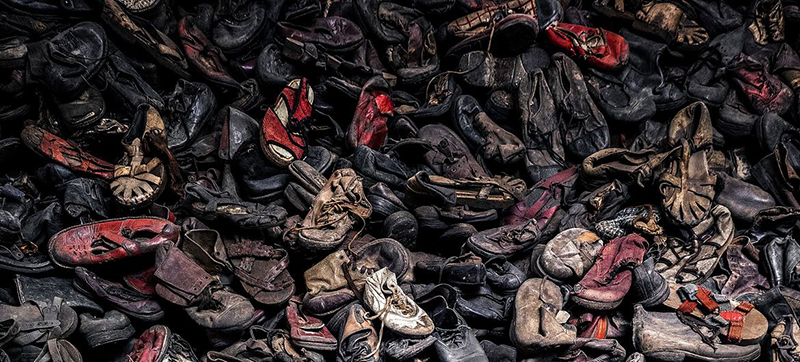 Holocaust
Holocaust
Holocaust remembrance: beware ‘siren songs of hate’ – UN chief
New York: At a UN ceremony to mark the Holocaust on Friday, Secretary-General António Guterres warned that antisemitism, hate speech, and misinformation are ever-present, 90 years on from the rise of the Nazi Party in Germany.
In his speech, delivered at UN Headquarters in New York, Mr. Guterres recalled that, within months, the Nazis had dismantled fundamental constitutional rights and paved the way for totalitarian rule: members of parliament were arrested, freedom of the press was abolished, and the first concentration camp was built, in Dachau.
The antisemitism of the Nazis became government policy, followed by organized violence and mass murder: “by the end of the war, six million children, women, and men – nearly two out of every three European Jews – had been murdered”.
Alarm bells ignored
Mr. Guterres went on to draw parallels between 1933 and today’s world: “the alarm bells were already ringing in 1933,” he declared, but “too few bothered to listen, and fewer still spoke out”.
The UN chief said that there are many “echoes of those same siren songs to hate,”
pointing out that we are living in a world in which an economic crisis is breeding discontent; populist demagogues are using the crisis to win votes, and “misinformation, paranoid conspiracy theories, and unchecked hate speech” are rampant.
In addition, continued Mr. Guterres, there is a growing disregard for human rights and disdain for the rule of law, “surging” white supremacist and Neo-Nazi ideologies; Holocaust denial and revisionism; and rising antisemitism - as well as other forms of religious bigotry and hatred.
‘Antisemitism is everywhere’
The Secretary-General lamented the fact antisemitic hate can be found everywhere today and, he said, it is increasing in intensity.
Mr. Guterres cited several examples, such as assaults on Orthodox Jews in Manhattan, Jewish schoolchildren bulled in Melbourne, Australia, and swastikas spraypainted on the Holocaust memorial in the German capital Berlin.
Neo-Nazis now represent the number one internal security threat in several countries, declared Mr. Guterres, and white supremacist movements are becoming more dangerous by the day.
‘Set up guardrails’
The online world is one of the main reasons that hate speech, extreme ideologies and misinformation are disseminating so fast around the world, and the UN chief appealed to all those involved, from tech companies to policymakers and the media, to do more to stop the spread, and set up enforceable “guardrails”.
He went on to call out social media platforms and their advertisers who, he said, are complicit in moving extremism to the mainstream, turning many parts of the Internet into “toxic waste dumps for hate and vicious lies”.
The UN’s contribution to addressing the issue includes the Secretary-General’s Strategy and Plan of Action on Hate Speech, proposals for a Global Digital Compact for an open, free, inclusive, and secure digital future, and a code of conduct to promote integrity in public information.
‘New waves of antisemitism’
In his address to the Ceremony, Csaba Kőrösi, President of General Assembly, reminded his audience that, although the Assembly was created to ensure that no one would have to see what the Holocaust survivors endured, 2023 is already seeing “new waves of antisemitism and Holocaust denial” across the world.
“Like poison, they seep into our everyday lives. We hear them from politicians, we read it in the media. The hate that made the Holocaust possible continues to fester”, declared Mr. Kőrösi.
The General Assembly President concluded by urging pushback against the “tsunamis of disinformation crashing about the Internet”.
Action through education and moderation
In a statement released on the International Day, UNESCO, the UN education, science, and culture agency, referred to the partnerships it has established with leading social media company Meta – the owner of Facebook and TikTok – as a first step towards fighting online antisemitism and Holocaust denial, but acknowledged that significant work still needs to be done.
This programme involves the development, in collaboration with the World Jewish Congress, of online resources, which are now used by the platforms to counter the spread of content denying and distorting the Holocaust.
“As we enter a world with fewer and fewer survivors who can testify to what happened, it is imperative that social media companies take responsibility to fight misinformation and to better protect those targeted by antisemitism and hate,” said UNESCO Director-General Audrey Azoulay.
Widespread online Holocaust denial
UNESCO research has found that antisemitism and denial and distortion of the Holocaust, continue to proliferate on all social media platforms.
On average, 16 per cent of social media posts on the Holocaust falsified history in 2022. On Telegram, which has no content moderation, this rises to 49 per cent, whilst on Twitter the amount has risen considerably following the upheaval at the company at the end of last year.
Offline, UNESCO has programmes across the world to promote Holocaust and genocide education.
Next month, UNESCO and the US Holocaust Memorial Museum aim to train ministry of education officials in 10 countries to develop ambitious Holocaust and genocide education projects and, in the US, will train educators in the US on how to address antisemitism in schools.
Support Our Journalism
We cannot do without you.. your contribution supports unbiased journalism
IBNS is not driven by any ism- not wokeism, not racism, not skewed secularism, not hyper right-wing or left liberal ideals, nor by any hardline religious beliefs or hyper nationalism. We want to serve you good old objective news, as they are. We do not judge or preach. We let people decide for themselves. We only try to present factual and well-sourced news.







